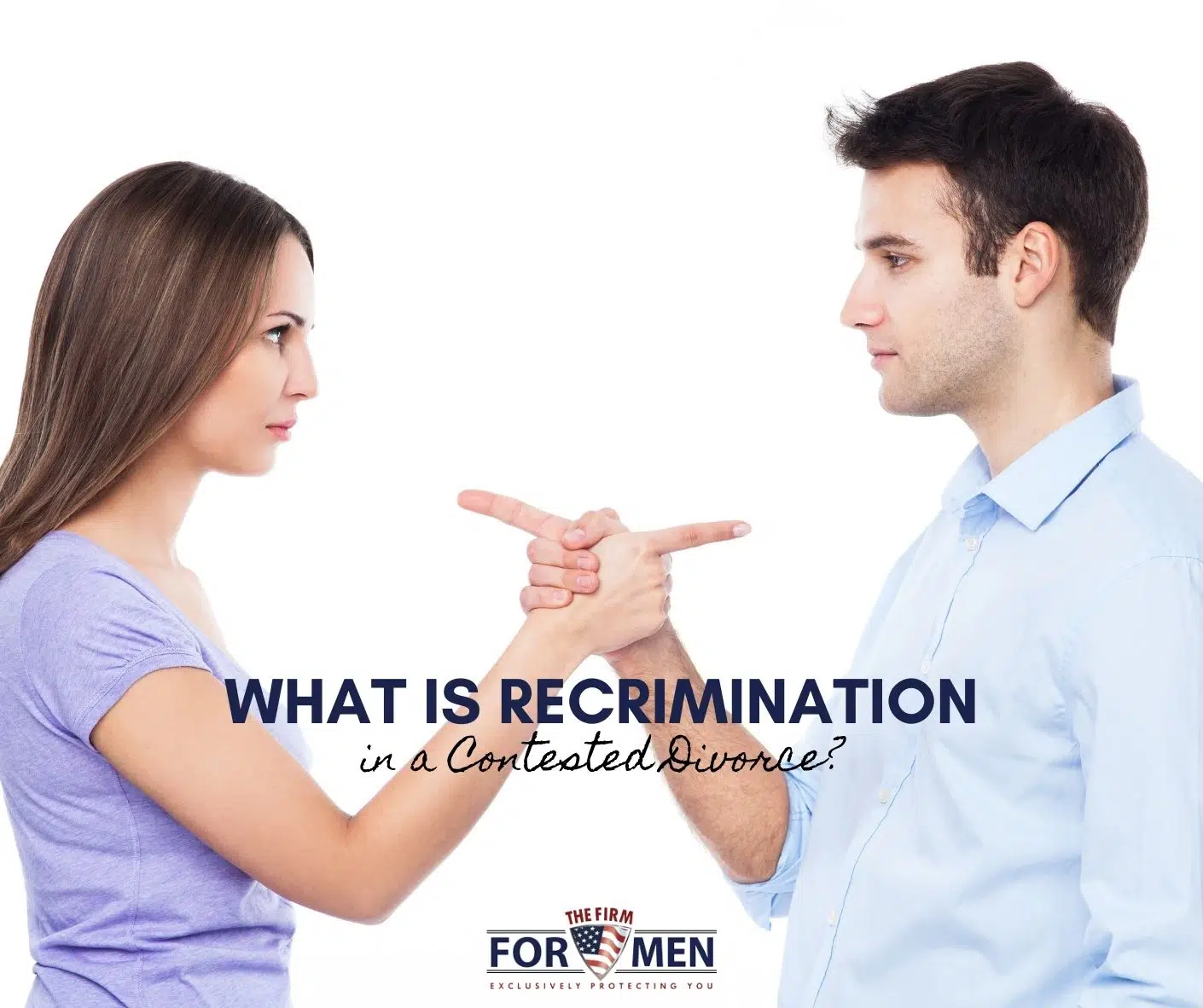The phrase resonates on playgrounds: “I know you are but what am I?” This childish taunt grows up to become “whataboutism” in politics and “recrimination” in a Virginia divorce. The concept behind all three is the same: accusing your accuser of the same or worse behavior.
Jump to a Section
Divorce 101
In Virginia, you can have two types of divorce:
- Fault-grounds divorce—You accuse your spouse of committing a grievous, irreparable fault that destroys the marriage; think adultery, sodomy or buggery outside of marriage (yeah, yeah, we get the implication), desertion, and such
- No-fault divorce—You both realize the marriage is not working but its failure is not anyone’s responsibility, so you agree to divorce amicably
Within the two types of divorce, you can also have two methods of handling them:
- Contested divorce—One of you resists divorcing, or wishes to shift fault to the other
- Uncontested divorce—You both work through property settlement, child custody and visitation, spousal support, and all other issues in relative harmony
The two types of divorce usually pair off with the two methods like this:
- Fault-grounds divorce results in contested divorce—Your spouse does not particularly like being accused of sodomy and buggery (outside of marriage) and fights your accusations, for example
- No-fault divorce results in uncontested divorce—Lacking anger, energy, and resentment, you both wisely move ahead in a neutral, efficient, and calm manner
We say “usually” because spouses are unpredictable. You could accuse your spouse of adultery and get no pushback; your spouse may indeed be guilty! You could be well on your way through a property settlement agreement for a no-fault divorce and suddenly your spouse wants to contest everything. That unpredictability highlights the value and need of having a great Virginia Beach divorce attorney on your side (hint hint).
Virginia Divorce Defenses
Your Virginia family law attorney may roll out recrimination as a defense in a contested divorce, or you may see it emerge from the other side. It is a counterclaim, a way to rebut a claim made against one party in a legal action.
In a divorce, you and your attorney can push back against your divorcing spouse using procedural defenses (wrong jurisdiction, misfiled paperwork, expired statute of limitations and the like) or defenses founded in conduct.
Typical defenses based on conduct include a spouse who:
- Does not object to your kink—Your adultery or sodomy outside of marriage may be just fine with your spouse, which is known as connivance
- Forgives your transgressions—Your spouse may have taken you back after your little episode of sodomy or buggery outside of marriage; that is called condonation
- Agrees to your lie about the reasons for divorce to speed up divorce procedures—That’s called collusion
- Made you do the bad thing—You are claiming provocation, meaning your spouse egged you on or invited you to commit sodomy or buggery outside of marriage
- Does the same kinky stuff you are accused of doing—If you can show your spouse also committed sodomy or buggery outside of marriage, that defense is called recrimination
Recrimination
Suppose your spouse says you committed one of the fault grounds discussed in Code of Virginia § 20-91. She is accusing you of committing an actual crime, namely:
- Adultery
- Sodomy or buggery outside of marriage
- Felony conviction with minimum one-year sentence
- Cruelty
- Causing reasonable apprehension of bodily hurt
- Willful desertion or abandonment
You and your family law attorney will develop a defense strategy together. You are not expected to come up with all the answers; you just have to approve of the strategy.
Your attorney may recommend that you:
- Accept the accusation (an uncontested, fault-grounds divorce), or
- Deny the accusation (a contested, fault-grounds divorce), or
- Accuse your spouse of the same thing: recrimination
Recrimination is a divorce defense because it undermines the plaintiff’s complaint, since only an innocent person can accuse the spouse of one of the six faults as grounds for divorce.
But is Recrimination Effective?
Recrimination is—to be blunt—a lousy defense. To use it, you are saying to the court, “we deserve each other, because we both did really, really bad things.”
In a contested divorce, you always strive to be the better person, to hold the upper hand. Using recrimination means you admit to the fault grounds but claim your spouse did the same vile things, so neither of you can use fault grounds.
Even if a no-fault divorce takes months longer than the fault-grounds divorce, the delay is worthwhile. You both emerge as respected and respectable people.
You can still contest the divorce to iron out minor disagreements in property settlement, custody issues, or other matters. Just talk to your attorney about a strategy that allows you and your spouse to reach a calm, amicable agreement with an eye toward a peaceable outcome.
Call The Firm For Men in Virginia Beach
The Firm For Men welcomes your questions, concerns, and worries. Contact us today or telephone our Virginia Beach office at (757) 383-9184 to learn how we can help protect your rights, secure your financial freedom, and bring you peace of mind.

